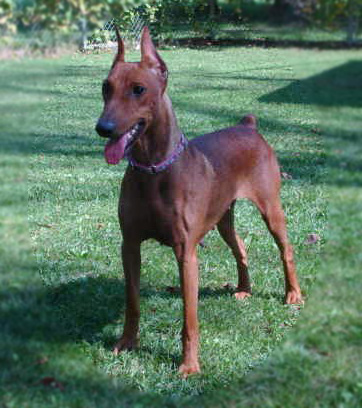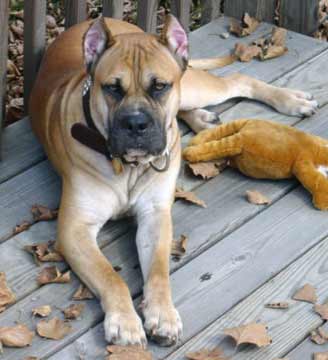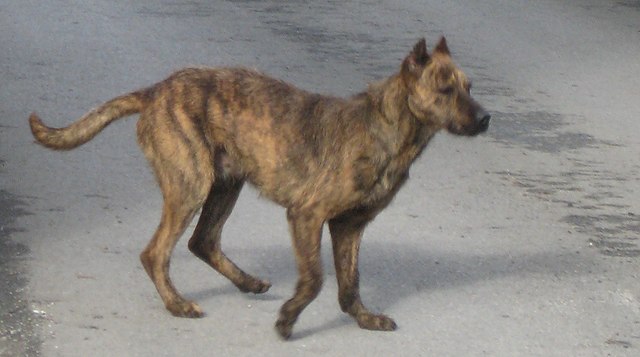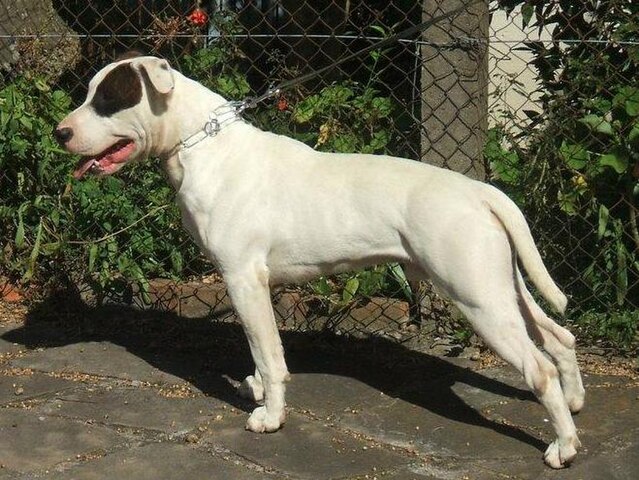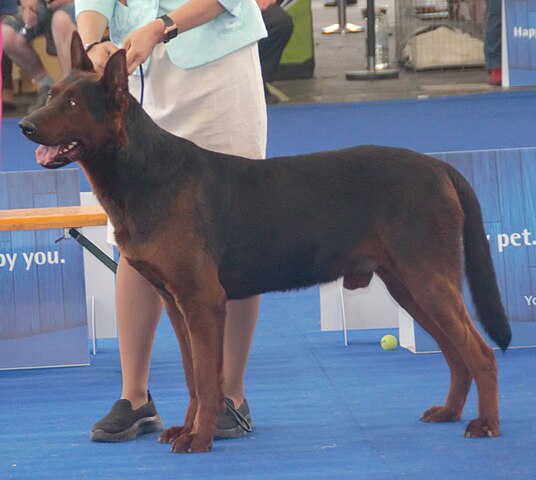The German Pinscher is not a small Doberman, nor an oversized Miniature Pinscher. Unlike the three sizes of Poodles – where every size is still considered a Poodle – each of the three Pinschers is a distinct and separate breed. Of the trio of Pinscher breeds, the German has the strongest prey drive because he was bred to hunt vermin in horse stables. He was also originally used as a guard of the house and the farm. While he gets along fantastically with horses, he can be understandably dangerous to small pets such as hamsters or guinea pigs!
The German Pinscher is recommended for experienced dog owners, rather than novices. This mid-sized working dog has an assertive personality and will take control if no one else takes the reigns. Rules and boundaries are definitely needed from the very start, as well as firm, structured obedience training. Furthermore, as a breed they are suspicious of strangers and can make pretty good guard dogs to boot – both traits make them less than ideal for the novice owner.
German Pinschers are alert, high energy dogs that want to interact with their owners much of the time. They enjoy taking part in whatever endeavor the family is currently involved in, whether at home or elsewhere. Curious and up for anything, the breed exudes a certain confidence at all times. Prospective owners must be prepared for both the exercise needs, as well as the time commitment, that this breed calls for. A couple of long walks a day are a must, combined with a good run in a securely fenced yard and plenty of interaction throughout the day. This is not the breed for people who work long hours.
Often clown-like, the German Pinscher lives to entertain! Many keep their puppy antics long after they’ve physically matured. As this breed can live for quite a long time, owners will get many years of fun! Throughout all life stages, German Pinschers are affectionate and loving. Although they are good with older children, they are not recommended for young children as many do not have the patience or tolerance for childhood teasing. They also may not do best in homes with cats unless they are raised with them from puppyhood.
Devoted and loyal, they can be protective of their owners and their properties. The breed should never behave aggressively for no reason, but if a real threat were to ensue a German Pinscher would undoubtably react. Although they are on the smaller side for a guard dog, they would absolutely defend their owner if someone were to break-in. Additionally, their bark makes them sound bigger than what they are, so a possible burglar might skip the house with a German Pinscher in it from the sound alone!
Training is a must for this breed! Naturally assertive, they benefit greatly from the structure and “rules” of obedience training. German Pinschers are known to be very intelligent, however they can also be independent. Those that do well in obedience competitions and other dog sports often have trainers who can work through the wilfulness of these dogs. Some German Pinschers excel in manipulation tactics and require their trainers to be at least as smart as they are! For those owners who are up for it, German Pinschers are actually incredibly trainable dogs once one gets past their sometimes stubborn, occasional willful personalities. The breed competes successfully in agility, obedience, conformation, rally, coursing, barn hunt, tracking, CGC, and nose work.
German Pinschers aren’t known for being excessive barkers, however many of them have the bad habit of jumping up on people. A good number of them are also quite adept at destroying plush and squeaky toys. Finally, those individuals who haven’t been properly exercised can become destructive when bored. A combination of training, exercise, and proper management (along with time) are essential.
